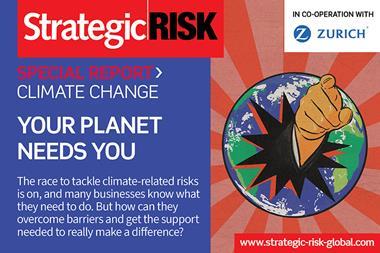80% say improved risk management will be critical for their business to protect and build value in the next five years - EY
A new EY survey of more than 500 global board members reveals that enhanced risk management has become a top priority for boards: 79% believe that improved risk management will be critical in enabling their organisations to protect and build value in the next five years.
But despite the criticality of risk management, many board members lack confidence in their organisation’s capabilities.
For example, just 18% believe that their organisation’s disaster response and contingency planning is highly effective, and only 13% believe their organisation is highly effective at embedding risk and compliance activities.
Risk management today typically lacks focus on emerging and atypical risks. Further, the risk function is not always aligned with business strategy and can be too entrenched in the here and now.
“The uncertainty of the future is very high compared with the recent past, which makes planning much harder,” says Alan Stewart, Audit Committee chair at Diageo and former CFO of Tesco. “But, of course, inherent in that uncertainty is opportunity.”
Other key findings include:
- 83% of board members believe market disruptions have become increasingly impactful and 87% believe they have become increasingly frequent.
- 55% of board members state that risk management often struggles to keep pace with changes in business strategy.
- Eight in 10 boards believe improved risk management will be critical for their business to protect and build value in the next five years.
- Fewer than 20% of boards believe their organisations are highly effective in disaster response and contingency planning or their understanding of how risks are interconnected.
- 69% of businesses plan to increase their level of investment in data and technology for risk management in the next 12 months. And, when presented with a series of initiatives that enhance enterprise resilience, boards identify the use of data and technology as their top priority.
Future gazing
Increasingly, it is critical to consider a longer time horizon when assessing strategy and risk – ideally more than five years.
Some 43% of the risk management leaders, for example, look more than five years into the future when scenario planning, compared with just 22% of the risk management developers.
And 28% of the risk management leaders look more than five years into the future when setting their organisation’s business strategy, compared with just 8% of risk management developers.
While the proportion of boards that expect climate change to more than moderately impact their businesses in the next 12 months has increased from 26% to 33% in the past two years, they still only rank it as their ninth most important risk.




















No comments yet